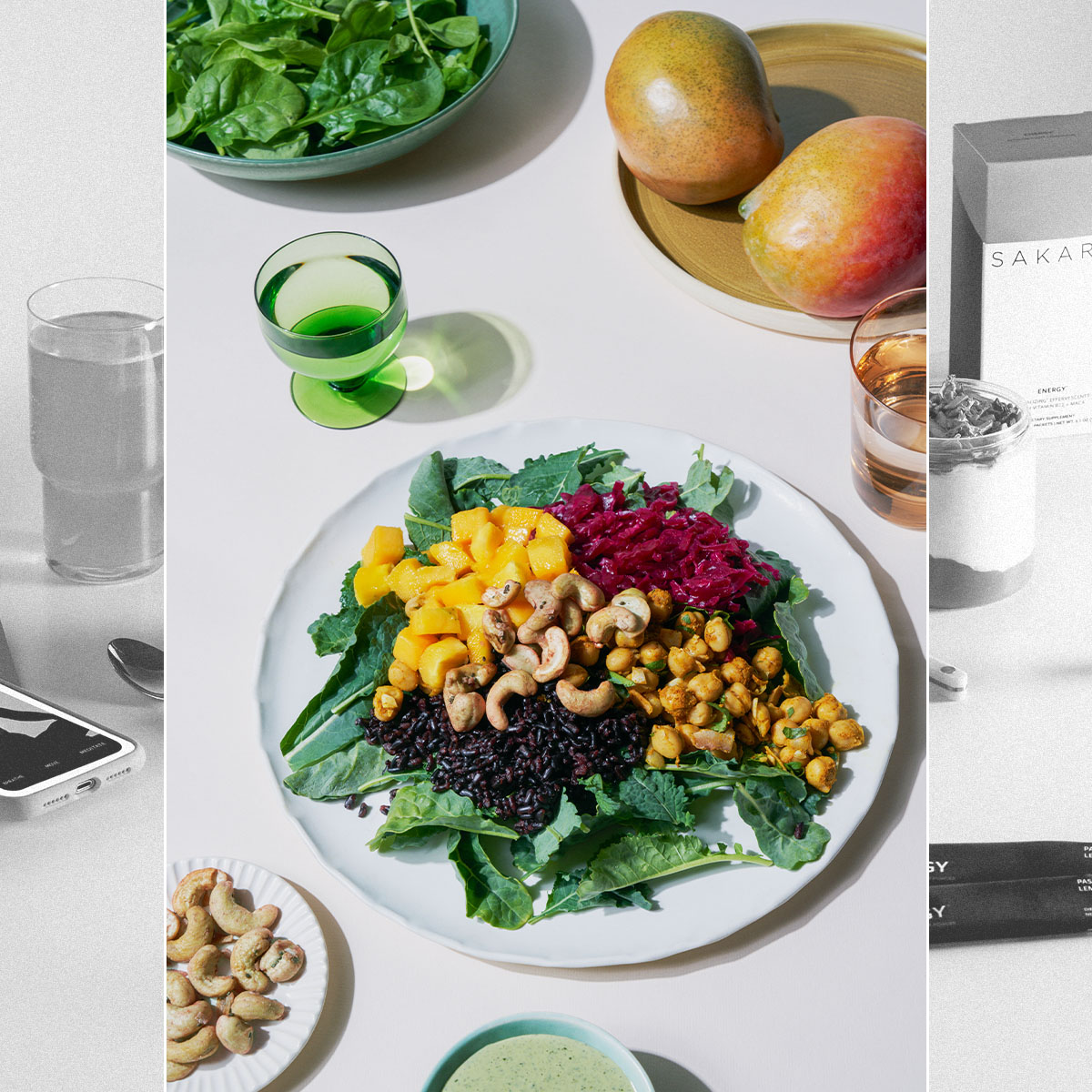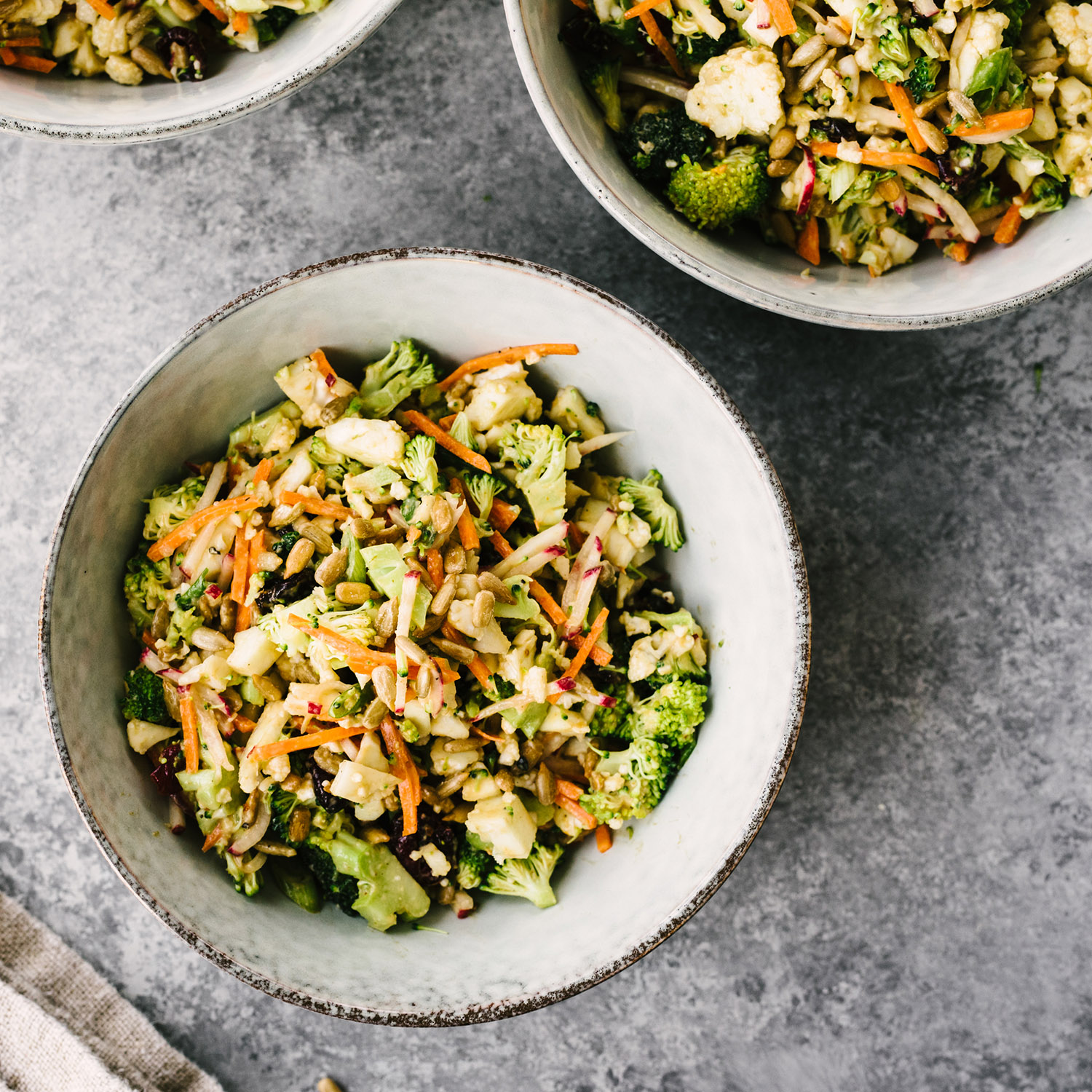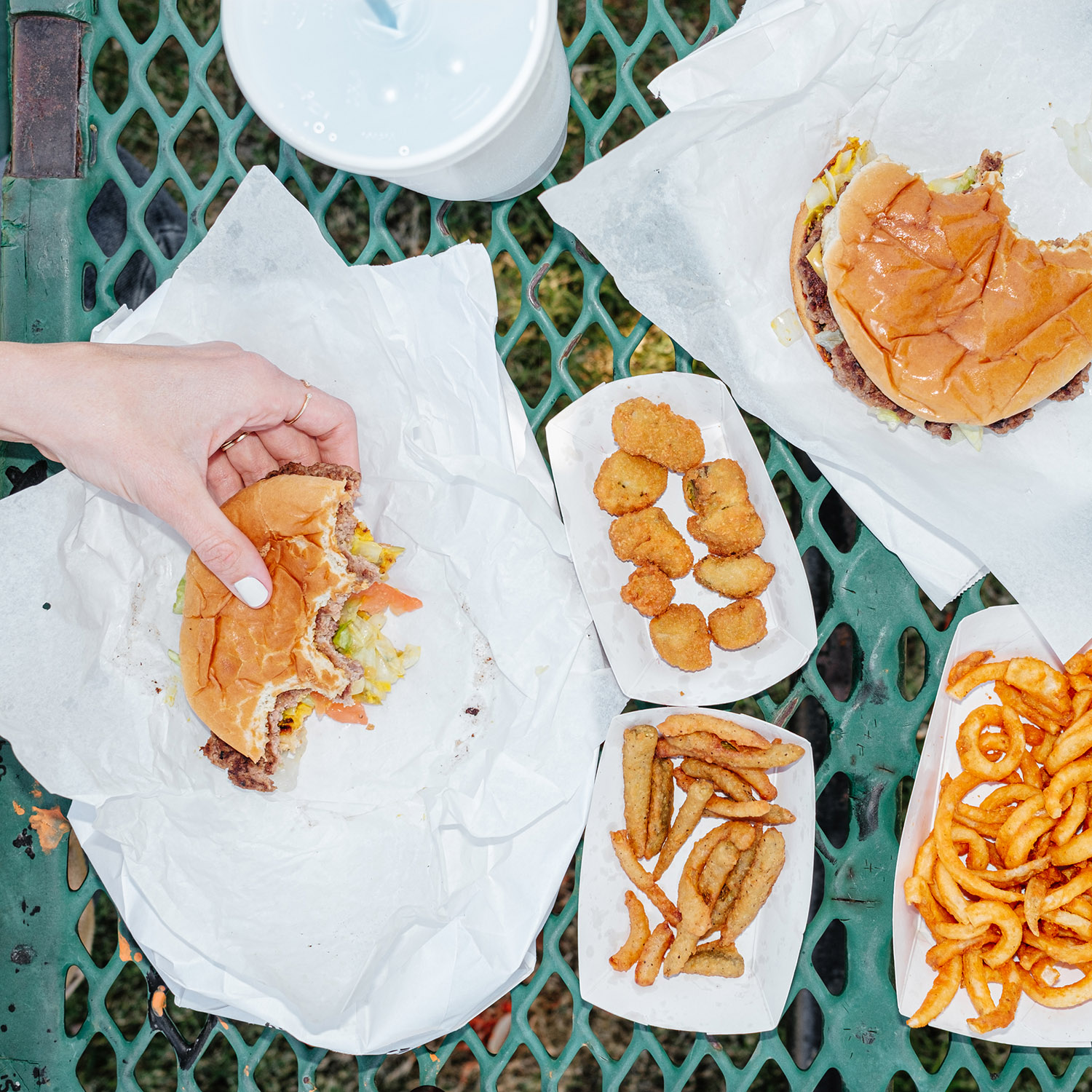This Is Exactly What Happens to Your Body on Sugar

I've successfully given up both gluten and dairy, but I still struggle with quitting sugar. It's not for a lack of trying. Giving up sugar is absolutely the hardest health-advised food elimination I have ever attempted. Even though I am both an avid listener and an eager student when it comes to health and wellness, I still find it hard to kick the craving to this day.
The thing is, I really do want to cut out sugar. Linked to cavities, concentration problems, candida, energy crashes, and even cancer, the sweetest component of our diet really is disastrous for our health. Especially when learning about the rampant "sugar epidemic" hidden in processed foods, it can be easy to start feeling defeated—but hold off just a sec.
Even without successfully "quitting sugar," there are manageable changes you can make to your diet to minimize sugar's damaging effects. Enter Josh Axe, DNM, CNS, DC, founder of Ancient Nutrition and DrAxe.com. First, the holistic health expert explains exactly what happens to the body on sugar. But so as not to leave you in a state of fear and panic, he makes a few functional suggestions that are way more helpful than, "Stop eating sugar."
Warning: After reading this, a sugar cleanse will be your New Year's resolution in 2019.

The bad news: Sugar really is that bad
"[Sugar] has a head-to-toe impact on the human body," Axe says. "It's not necessarily the added fat in your diet that you should be worried about; it's the added sugar."
The problem is, added sugar is hidden everywhere. Everything from our ketchup to our bread has sugars added to the mix. Books and documentaries have both alleged that there is an actual corporate conspiracy to keep us unconsciously hooked. This might sound far-fetched, but biochemically speaking, it adds up.
It triggers an addictive cycle in your brain
"When you eat foods high in sugar, it triggers the release of dopamine, a neurotransmitter that controls the reward and pleasure center in the brain," says Axe. Just like with other drugs, you can build up a tolerance to sugar. Over time, you need to consume larger amounts of sugar to get the same biochemical effect. The immediate, short-term reward circuitry in our brains is how biological sugar addiction begins.

This is also why you're likely to experience nasty withdrawal symptoms when you cut back
Just like with other addictions, you can experience sugar withdrawal. "When you finally quit eating too much sugar, you may notice withdrawal symptoms like fatigue, nausea, and headaches," says Axe. "This occurs because your blood sugar levels drop because you can no longer rely on sugar, or glucose, for energy."
That's not to mention the impact on your teeth, gut, and more
Over the long term, Axe revealed that high levels of sugar consumption can lead to serious health conditions, including heart disease, leaky gut syndrome, tooth decay, and type 2 diabetes. In fact, the havoc wrought by sugar on our gut health can lead to inflammation, the culprit behind a number of diseases and chronic illnesses.
"Consuming too much sugar [can] lead to leaky gut because sugar changes the gut microbiota by increasing intestinal permeability," says Axe. "The sugars feed yeast and bad bacteria that damage the intestinal wall." This causes the chronic inflammation responsible for the onset of so many wellness woes. As Axe shares, there is even research linking inflammation to breast cancer.

But there's good news, too
Namely that there's something you can do to mitigate these side effects before they completely take over your life. The first order of business is obviously to reduce your consumption of sugar. "Most adults in the United States consume 22 teaspoons of added sugars daily," Axe reveals. "That's way more than the 6 to 9 teaspoons that the American Heart Association recommends."
Even without removing the sweetness from your diet, Axes names healthier substitutions for sugar, like stevia, Manuka honey, and dates. Swapping these for sugar in things like your morning coffee will begin whittling away at your sugar consumption.
There are other dietary changes you can make to help mitigate sugar-wrought damage to our bodies. Our hormones, in particular, are greatly impacted. Because of this, Axe explains, "You want to balance out key hormones in your body that are negatively affected by sugar consumption."
To do so, he advises incorporating clean proteins, fibers, and healthy fats into your diets.
For clean protein, Axe emphasizes wild-caught salmon, grass-fed beef, as well as organic poultry and eggs. Healthy fats are found in things like avocado, almond butter, nuts and seeds, olive oil, and coconut oil, which can be easily added to your diet. You can up your fiber intake with leafy green vegetables, berries, and nuts/seeds, which all also aid with colon health.
As for those pesky cravings—the ones that lead to those midnight snacks we end up regretting—Axe has one more trick up his sleeve. "If you are really struggling with a sugar addiction," he says, "Eat more sour and bitter foods." It might sound odd, but lemons, limes, green apples, and apple cider vinegar can all curb your cravings for sweet foods.
Next up: We ranked the 10 lowest-carb vegetables.
Disclaimer
This article is provided for informational purposes only and is not intended to be used in the place of advice of your physician or other medical professionals. You should always consult with your doctor or healthcare provider first with any health-related questions.
-
 Bella Hadid and Gwyneth Paltrow Apparently Love Sakara Life, so We Tried It for 30 Days
Bella Hadid and Gwyneth Paltrow Apparently Love Sakara Life, so We Tried It for 30 DaysHere are our honest thoughts.
By Erin Jahns
-
 The 6 Warning Signs You're Not Getting Enough Protein
The 6 Warning Signs You're Not Getting Enough ProteinAnd what to eat to up your intake.
By Sarah Yang
-
 Everything This Professional Ballet Dancer Eats to Fuel Her for Performances
Everything This Professional Ballet Dancer Eats to Fuel Her for PerformancesHer grocery staples include high-quality French butter.
By Candice Aman
-
 These 8 Foods Are the Worst for Rosacea—Here's What to Eat Instead
These 8 Foods Are the Worst for Rosacea—Here's What to Eat InsteadControl those flare-ups.
By Sarah Yang
-
 15 Things That Cause Bloating and How to Get Rid of It ASAP
15 Things That Cause Bloating and How to Get Rid of It ASAPTry these.
By Sarah Yang
-
 Is the Alkaline Diet Overhyped? What Experts Want You to Know
Is the Alkaline Diet Overhyped? What Experts Want You to KnowHere's how it works.
By Sarah Yang
-
 I'm an Imperfect Dietitian and My Key to Eating Healthy Meals Is Convenience
I'm an Imperfect Dietitian and My Key to Eating Healthy Meals Is ConvenienceTake a peek at my weekly grocery staples.
By Candice Aman
-
 Avoid These 6 Foods—They'll Wreck Your Gut Health
Avoid These 6 Foods—They'll Wreck Your Gut HealthWhat to eat instead.
By Sarah Yang

